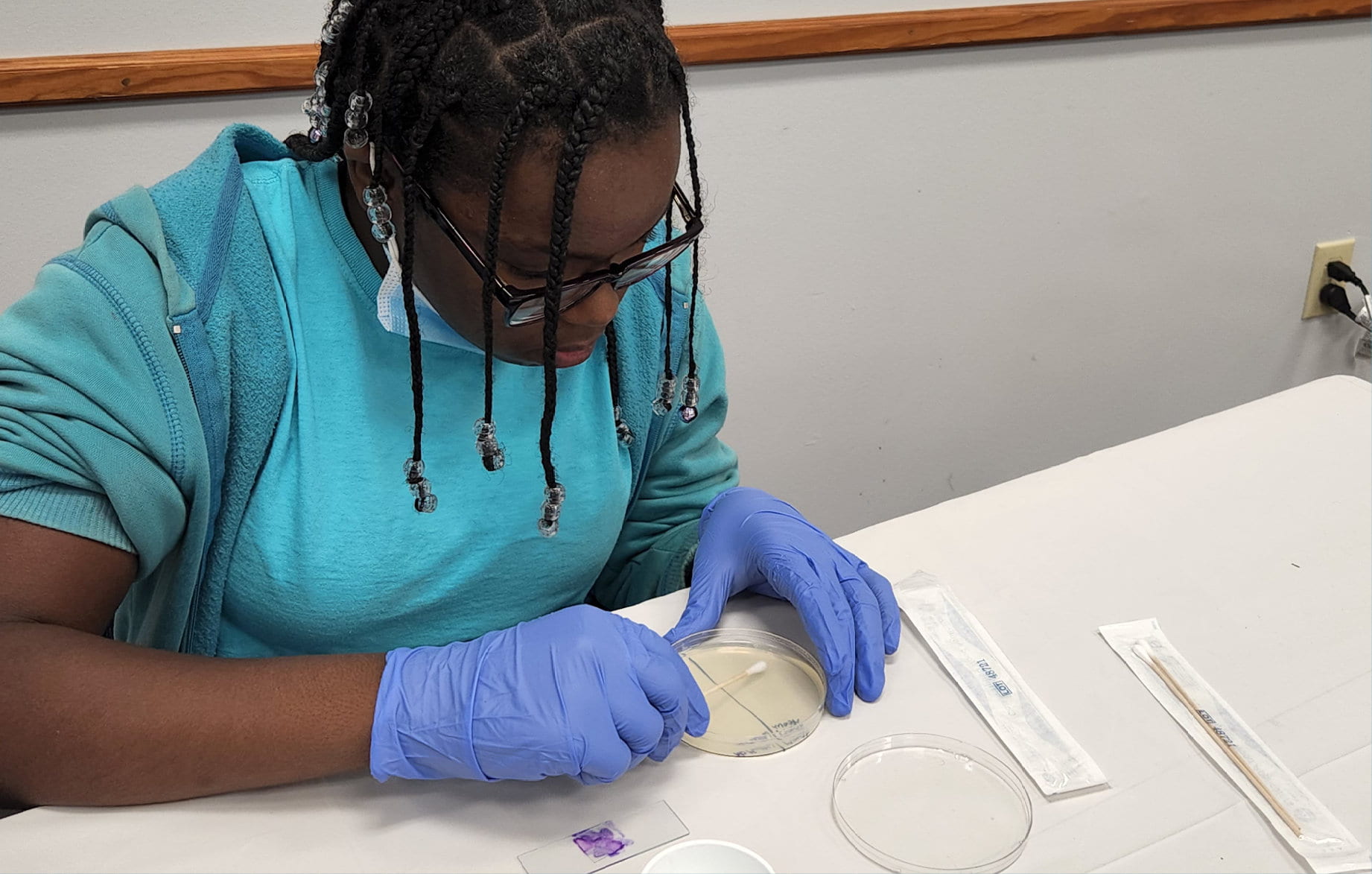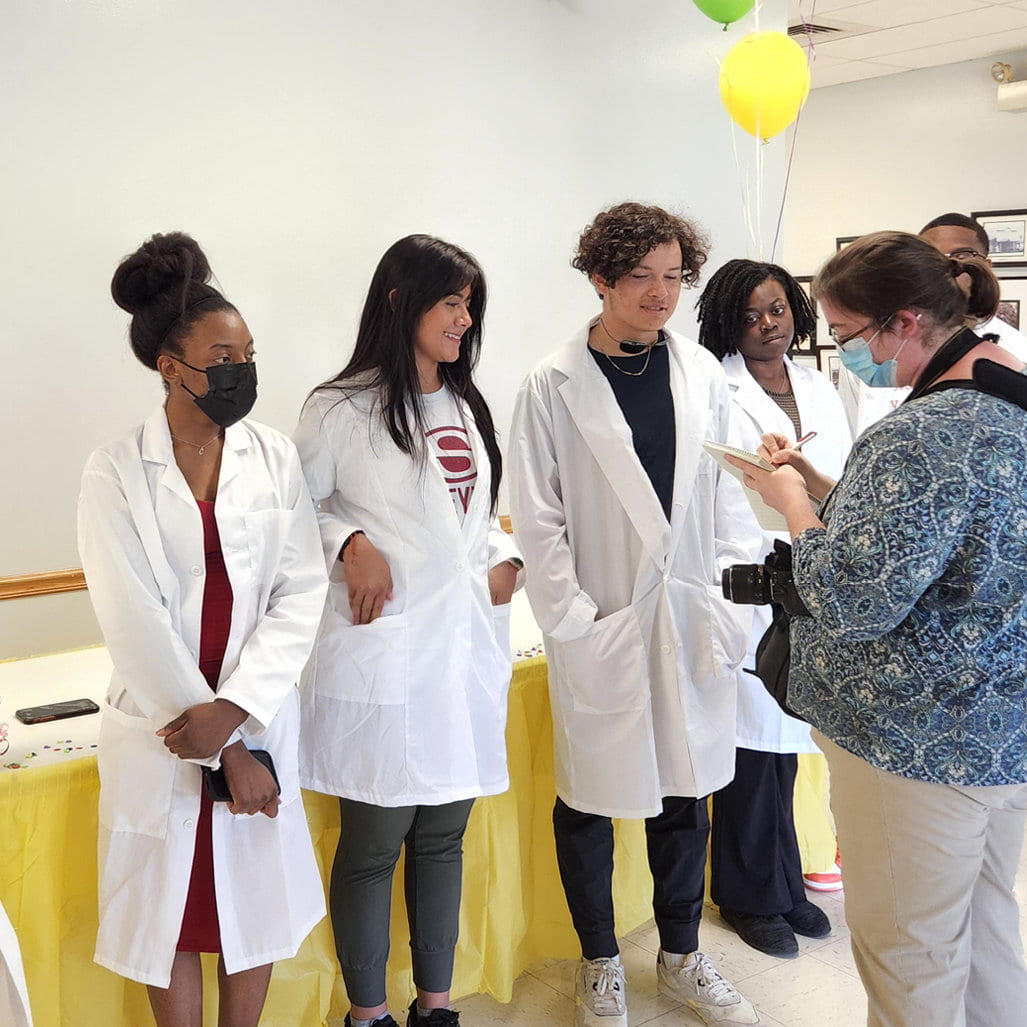STeAM in the Heart of the Delta
The STeAM Summer Camp at the University of Arkansas provides hands-on STeAM education, research, and laboratory experiences for students from the Arkansas Delta.
With new funding from the Science Education Partnership, a component of the National Institutes of Health, the program is expanding to improve STeAM awareness, academic performance and efficacy, future orientation, graduation rates, and college enrollment for 400 rising sixth-grade students.

Experiential Learning
A key component of the grade-wide initiative is a 7-day summer program at the U of A. Students will engage in STeAM modules and sub-modules, including Cancer, Cell, and Molecular Biology, Kinesiology, Physical Science, Art, Engineering, Graphic Design, Chemistry, and Earth Sciences. Mentored by University of Arkansas faculty and peer counselors, students will utilize project-based learning and collaborate to solve standards-based problems.

Professional Development for Teachers
15 STeAM teachers will undergo 36 hours of STeAM Curriculum Training each year to combine content matter from several subject areas and deliver effective lesson plans that enhance student learning. New lab equipment will also help improve instructional delivery systems and facilities.

College Savings Program for Students
To raise financial awareness and capacity for post-secondary education, program participants and their families will receive $75 seed deposits in an AR 529 College Plan and participate in financial education classes each academic year.
Research for Broader Impact
Each aspect of the 5-year program will be evaluated and measured to incorporate a comprehensive STEaM education and teacher training program in many rural, underresourced schools across the Delta. A control group of 400 rising 6th-grade students who share similar socioeconomic demographics will engage in the study.

